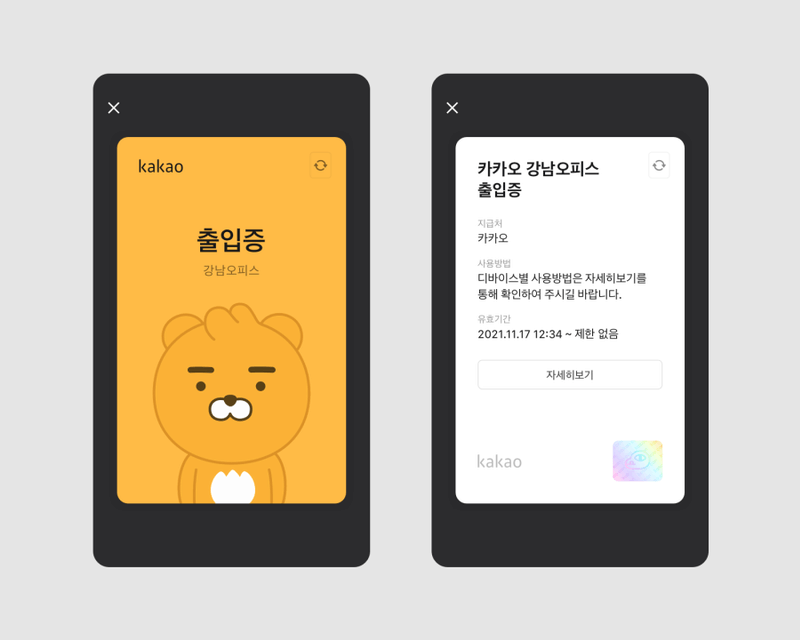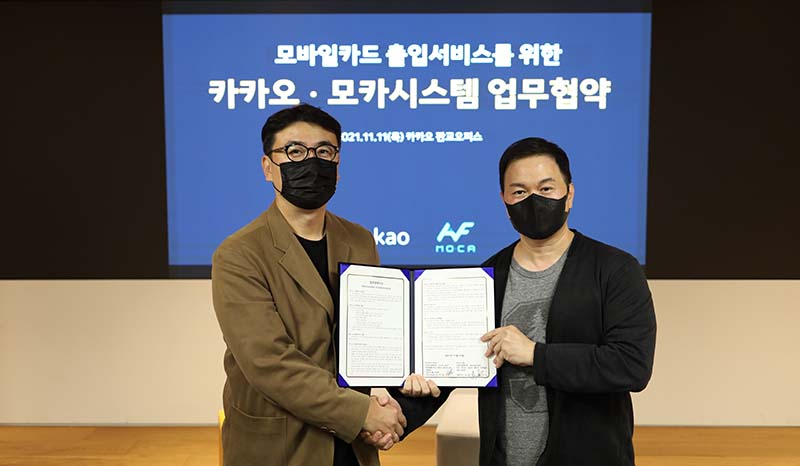MOCA and Kakao to put digital keys in pockets of 46 Million Koreans.

Plastic key cards and paper tickets may soon be a thing of the past in tech-savvy South Korea. Kakao, the country’s leading social platform for chat, content, and commerce, is expanding Kakao Wallet to include digital access cards. These can be used like employee badges to open office doors, but can also replace membership cards, admission tickets, and even ID cards.
People will be able to collect digital access cards in their Kakao Wallets and use them by simply bringing their phones close to a reader. The phone sends an encrypted token using BLE or NFC. The digital access cards are authenticated based on a person’s real identity and cannot be shared like plastic cards or paper tickets.
Frictionless access everywhere in Korea.
“Having access cards built into an app that people use all day long will change the way that we get into our offices and homes,” said Andrew Kim, CEO of MOCA, whose Airfob technology powers these digital badges. “Airfob is the first 100% cloud-based access control solution, making it the only technology capable of integrating with a large-scale distributed platform like Kakao.”
The significance of this move cannot be overplayed: Kakao reported 46.8 million users in Korea in its Q3 earnings report, accounting for more than 91% of the country’s total population.
Kakao’s first use case for these secure digital cards will be a digital employee ID service that allows employees to open office doors, access secure equipment, and even make purchases at the company cafe using credentials stored in Kakao Wallet. After that, it will be expanded to other areas like admission tickets, membership cards, training certificates, and possibly even government IDs.
There is an enormous advantage to integrating digital credentials into Korea’s ubiquitous social platform, which also supports real ID verification. Companies will be able to confidently and conveniently share secure smartphone-based access credentials with employees, vendors, and guests.
Kakao tests Airfob in its own offices.
Kakao is already piloting Airfob mobile credentials for employees at its headquarters. The company aims to eliminate all difficult-to-recycle plastic cards from its offices. If other companies adopt similar sustainability policies, the results could keep more than 230 million access cards (1.38 million kilograms worth) from ending up in landfills every year, according to 2021 research by OMDIA.
“Kakao’s mission is to make a better world with people and technology. For us it’s a no-brainer to replace inconvenient, wasteful plastic cards with digital versions that are more flexible and secure,” said Yang Joo-il, business manager for Kakao Wallet. “We’re excited to see all the ways people and companies will ultimately put these digital cards to use.”
Kakao and MOCA System inked an agreement on November 11. Kakao will open its digital employee IDs to external partners in the first half of next year.

Yang Joo-il (left), business manager for Kakao Wallet, and Andrew Kim (right), CEO of MOCA System, sign a memorandum of understanding at Kakao’s offices in Pangyo, South of Seoul.